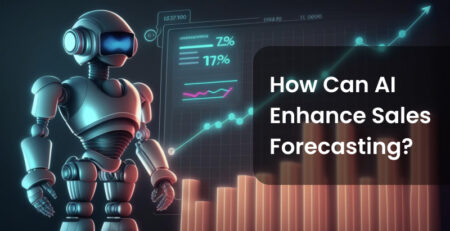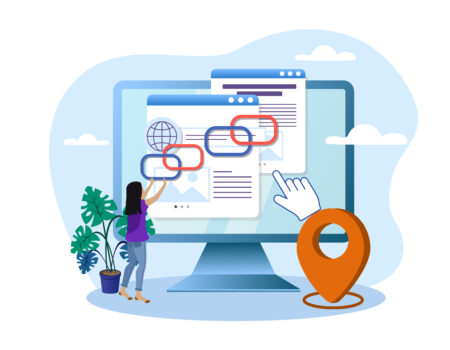SEOFOMO Survey Reveals How Ecommerce SEO Leverages AI in SEO for 2025
Survey highlights how AI in SEO revolutionizes ecommerce SEO workflows, driving gains in content production, conversion strategies, and search optimization.
Aleyda Solis’ SEOFOMO released a survey of ecommerce SEO professionals and store owners, showcasing diverse applications of AI in SEO. The findings reflect both established SEO trends 2025 and innovative approaches to boost efficiency. However, many respondents are still exploring how to integrate AI tools for SEO into their processes, with only a small fraction dismissing AI in SEO entirely.
The survey identified five key areas where AI in SEO is making an impact:
Training & Education
A growing number of ecommerce SEO respondents are using AI tools for SEO to develop internal training resources and customer-facing documentation. The survey notes:
“Emerging but notable:
- Exploring how AI tools for SEO operate
- Creating SEO automation training materials or learning resources”
This trend highlights the role of AI in SEO in building knowledge and streamlining onboarding for teams.
User Experience (UX) & Conversion Rate Optimization (CRO)
Ecommerce SEO professionals are harnessing AI in SEO to enhance user experience and boost conversions. Key applications include:
- AI-powered product recommendations
- Chatbots for customer support and product discovery
- UX/CRO audits driven by user behavior analysis
These uses demonstrate how AI tools for SEO improve both functionality and customer engagement.
Technical SEO
SEO automation shines in technical SEO, where AI in SEO streamlines repetitive tasks and supports decision-making. Respondents reported using AI tools for SEO to analyze data, often integrating with tools like Screaming Frog via OpenAI’s API. One standout application was crafting internal linking strategies, showcasing SEO automation’s potential to save time and resources.
Analysis & Research
AI in SEO is transforming keyword research and analysis. The survey highlighted keyword clustering as a popular practice, which aligns with SEO trends 2025 by avoiding repetitive content and focusing on comprehensive topic coverage. While Google Search rankings now emphasize topicality through core systems, the absence of topical research in the survey is notable—though keyword clustering may implicitly cover this. AI in SEO excels in data-driven tasks like these, making it a powerful tool for research.
Content Creation
AI-generated content is a cornerstone of ecommerce SEO, with respondents using AI tools for SEO to craft product descriptions, meta titles, descriptions, and alt text. Additional applications include:
- Developing blog posts, landing pages, and FAQs
- Brainstorming content ideas
- Ensuring brand voice consistency through tone and word choice checks
- Grammar and clarity enhancements
However, Google Search rankings may penalize low-effort AI-generated content, as Danny Sullivan emphasized at Search Central NYC, urging originality. Respondents also used ChatGPT for SEO for assistive tasks like grammar checks, though care is needed to avoid injecting AI’s stylistic quirks.
Closing Reflections: The Road Ahead for AI in SEO
The SEOFOMO survey paints a vivid picture of AI in SEO as a game-changer for ecommerce SEO, yet its adoption is not universal. A surprising 37% of respondents are not yet leveraging AI tools for SEO in a meaningful way: 31% are poised to adopt SEO automation, 3% remain firmly opposed, and 4% are still undecided. This hesitation signals an opportunity for education and experimentation.
For those on the fence, the survey offers a compelling perspective. Platforms like WordPress are weaving SEO automation into their ecosystems through SEO plugins, while Wix’s Astro chatbot and
Shopify’s upcoming integrations demonstrate practical applications of AI in SEO. The key takeaway? You don’t need to overhaul your workflow overnight.
Start small—think of tasks you’d delegate to an intern, like data sorting or content drafting. These are where AI tools for SEO shine, amplifying productivity by up to five times, as the survey suggests.
Content Creation: Crafting with Precision
AI-generated content is a cornerstone of ecommerce SEO, empowering professionals to produce product descriptions, meta titles, descriptions, and alt text at scale. Respondents also tapped AI in SEO for blog posts, landing pages, FAQs, and brainstorming creative ideas. Aligning content with brand voice and enhancing grammar further showcase AI tools for SEO’s versatility.
However, Google’s Danny Sullivan cautioned at Search Central NYC that Google Search rankings prioritize originality, warning against low-effort AI-generated content.
Using ChatGPT for SEO for assistive tasks requires care to avoid AI’s stylistic quirks, ensuring content remains authentic.
Analysis & Research: Smarter Strategies
AI in SEO is redefining keyword research, with keyword clustering emerging as a top practice. By aligning with SEO trends 2025, clustering reduces content redundancy and emphasizes topical depth. While Google Search rankings now value topicality through core systems, the survey’s lack of explicit topical research is curious—perhaps keyword clustering encompasses this. AI in SEO’s data-crunching prowess makes it indispensable for strategic research, helping professionals stay ahead of the curve.
Technical SEO: Efficiency at Scale
In technical SEO, SEO automation streamlines repetitive tasks and informs smarter decisions. Respondents integrated AI tools for SEO with platforms like Screaming Frog via OpenAI’s API, with internal linking strategies as a standout use case. This efficiency underscores SEO automation’s potential to save time and resources, making it a must-explore for ecommerce SEO teams.
User Experience (UX) & Conversion Rate Optimization (CRO): Customer-Centric Innovation
AI in SEO is enhancing user experience and conversions through AI-powered product recommendations, chatbots for product discovery, and UX/CRO audits based on user behavior. These applications highlight how AI tools for SEO drive both functionality and customer satisfaction, aligning with ecommerce SEO’s goal of delivering seamless shopping experiences.
Training & Education: Building Expertise
A growing number of respondents are using AI in SEO to create internal training materials and customer documentation. From demystifying AI tools for SEO to developing SEO automation resources, this trend reflects AI in SEO’s role in fostering knowledge and empowering teams to navigate SEO trends 2025.
Partner with our Digital Marketing Agency
Ask Engage Coders to create a comprehensive and inclusive digital marketing plan that takes your business to new heights.
Contact Us
Integrating the AI in SEO Revolution
The SEOFOMO survey is a clarion call for ecommerce SEO professionals, digital marketers, and SEO agencies to embrace AI in SEO. While 37% of respondents are not yet fully onboard, the momentum is undeniable.
SEO trends 2025 point to a future where AI tools for SEO and SEO automation are not just optional but integral to staying competitive. Whether you’re optimizing content, analyzing data, or enhancing user experience, AI in SEO offers tools to work smarter, not harder.
For those hesitant, start small, experiment, and explore. The ecommerce SEO landscape is evolving, and AI in SEO is at its heart. As SEO trends 2025 unfold, those who harness AI tools for SEO will lead the charge, turning challenges into opportunities and setting new benchmarks for success. Let’s step into this exciting future together!







